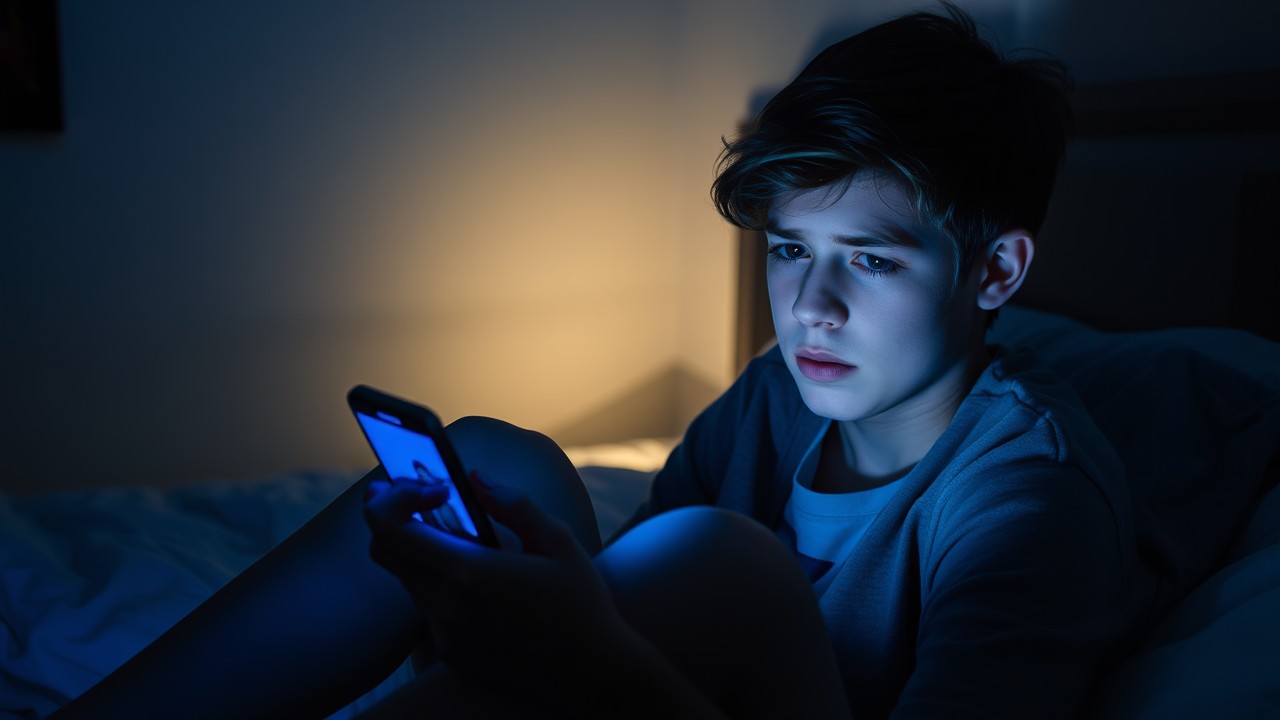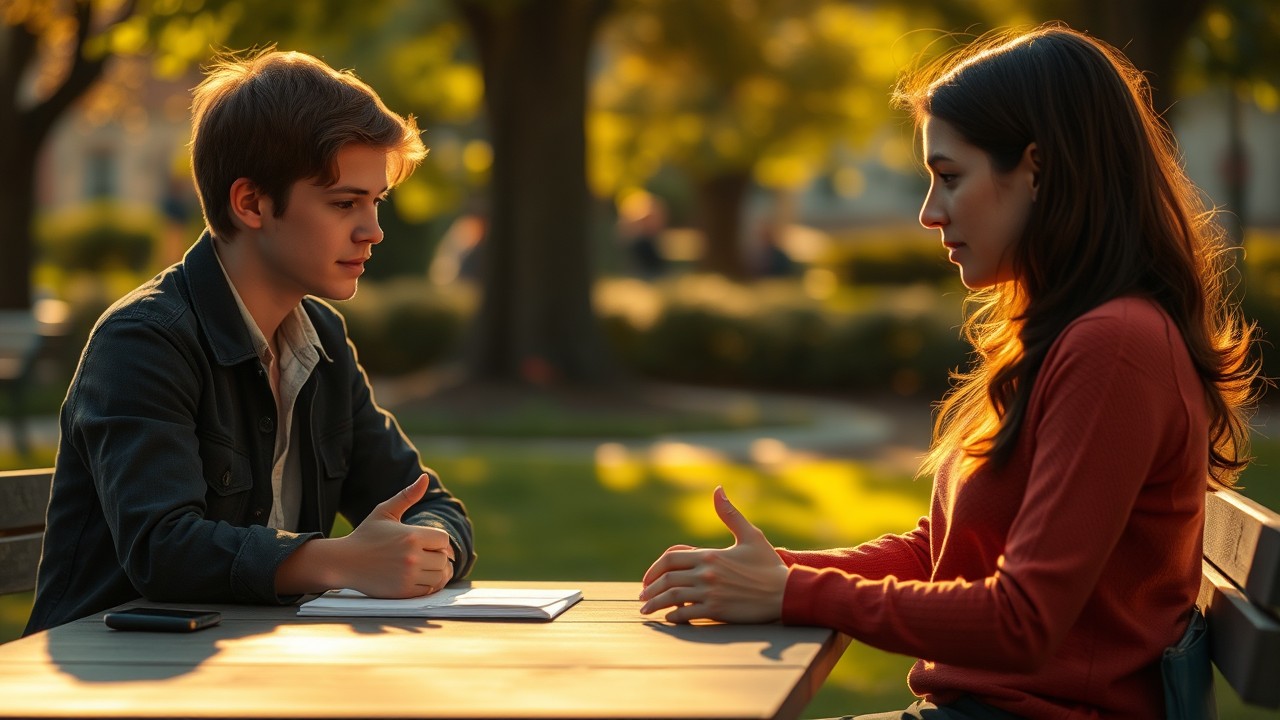A letter to the students, teenagers, and quiet ones losing confidence in a noisy world.
🧠 7 Alarming Signs Your Child Is Battling Social Anxiety You Can’t Ignore
Recognize key signs of social anxiety in children — and learn how to gently help them find their voice again.
👋 Hi, I’m Lokesh — and if you’re a parent, teacher, or just someone who deeply cares about a young person, I want to speak to you today from the heart.
Over the past few years, I’ve worked with hundreds of children and teenagers inside our community. And time and again, I’ve seen something that’s both heartbreaking and far too common:
🌱 Brilliant, curious, thoughtful young minds… quietly withdrawing from the world.
- Not because they’re lazy.
- Not because they’re rebellious.
- But because they’re afraid.
Afraid of judgment.
Afraid of saying the wrong thing.
Afraid of not being “enough” in a world that’s constantly measuring them.
We often think of social anxiety as panic attacks or nervous meltdowns. But in children, it wears a quiet disguise.
Sometimes, it sounds like:
“Can you order for me?”
“I don’t want to go to school today.”
“Never mind… it’s stupid.”
Sometimes, it doesn’t sound like anything at all.
And that’s why I wrote this — to help you spot the quiet warning signs of social anxiety in your child before it turns into a deeper struggle.

😔 What Social Anxiety Really Looks Like in Children
Social anxiety in kids rarely announces itself.
It hides behind:
- Politeness
- Silence
- “I’m fine.”
But if we look closely, we’ll see it — not in tantrums, but in tendencies.
Not in outbursts, but in withdrawals.
Here are 7 quiet but alarming signs your child may be battling social anxiety — and what you can do to help.
🔍 1. They Avoid Eye Contact
You speak to them, and they look at the floor. Or their phone. Or anywhere — except at you.
Avoiding eye contact isn’t just about shyness. It’s a subtle sign of discomfort… even fear.
They’re not being rude.
They’re protecting themselves from being seen too deeply.
➡️ What You Can Do:
Don’t force eye contact
Focus on safe moments of connection: bedtime chats, car rides, shared activities
Praise their effort, not just outcomes
🔍 2. They Stay Silent in Class or Group Settings
They’re smart. You’ve seen it at home.
But in class, they go quiet.
They say:
- “I just don’t like talking.”
- “I’m not good at it.”
But deep down, it’s fear:
- “What if I mess up?”
- “What if everyone laughs?”
➡️ What You Can Do:
Start small: reading aloud, sharing daily highlights
Celebrate every attempt to speak
Let them feel emotionally safe to try

🔍 3. They Overthink Simple Social Interactions
After a party or school event, they replay every moment:
“Did I sound weird?”
“Were they laughing at me?”
“I shouldn’t have said that…”
This isn’t drama — it’s survival mode.
➡️ What You Can Do:
Normalize awkwardness
Share your own “oops” stories
Try journaling, reflection, or calming techniques
🔍 4. They Avoid New Situations or Public Places
They resist:
Outings
New classes
Unfamiliar events
Over time, their world becomes smaller.
It’s not disinterest. It’s fear.
➡️ What You Can Do:
Introduce new environments gradually
Stay with them first, then ease back
Celebrate their courage, not just the result
🔍 5. They Seem Overly Focused on Being “Perfect”
They avoid tasks unless they’re sure they’ll succeed.
They obsess over schoolwork.
They break down over small criticisms.
To others, it looks like ambition.
To them, it’s fear of failing in public.
➡️ What You Can Do:
Share your own learning mistakes
Praise effort, not perfection
Help them separate self-worth from performance

🔍 6. They Complain of Physical Symptoms Before Social Events
Before something social, they say:
- “I feel sick.”
- “My head hurts.”
- “Can I stay home today?”
It’s not fake — it’s their body reacting to anxiety.
➡️ What You Can Do:
Validate their feelings
Explain how bodies reflect emotions
Use calming tools: breathing, music, stretching
🔍 7. They Talk Negatively About Themselves
You hear things like:
- “I’m awkward.”
- “Nobody likes me.”
- “I ruin everything.”
These aren’t harmless comments. They’re calls for compassion.
➡️ What You Can Do:
Gently challenge the inner critic
Ask, “Would you say that to a friend?”
Reflect their strengths. Reinforce their worth

🔦 Real Story: Aashna’s (Name changed for privacy) Journey from Silence to Self-Expression
Let me tell you about a girl named Aashna— a child I’ll never forget.
She was tall for her age. Big, curious eyes.
Quiet brilliance. Artistic soul.
She used to doodle patterns and write her feelings in secret notebooks.
But in class 6 and 7, the bullying started:
- “You’re too tall.”
- “You’re too serious.”
- “Why are you always writing poems?”
It wasn’t loud. It was quiet erosion — the kind that’s harder to see and easier to ignore.
And slowly, she began to shrink.
😞 “Something’s Wrong with Me.”
Her attendance dropped.
She stopped drawing.
She stopped laughing.
She started locking herself in her room.
Her parents — a school principal and a senior banker — were loving, successful, and confused.
They tried everything:
- Therapy
- New therapists
- Doctor visits
But they kept hearing:
“She’s just seeking attention.”
“She’ll grow out of it.”
She didn’t grow out of it, She grew into silence.
And one day, it got so bad, she tried to hurt herself.

🧠 Her Parents Were Doing Their Best — But Felt Lost
They were loving, educated, and heartbroken.
And nothing worked — until one of our past workshop participants connected them to us.
They were skeptical at first.
“What can public speaking do for a girl with panic attacks?”
We told them:
“This isn’t about giving speeches. It’s about giving her space to feel safe, seen, and heard.”
🫂 A Different Kind of Space
Aashna joined our Effective Communication Mastery System.
But here’s the powerful part:
Her mom joined her.
They came together.
And week by week, something beautiful happened.
💬 The Girl Who Once Went Silent… Began to Speak
She didn’t give a speech.
She just spoke.
🌱 She shared a poem she’d written
🎨 She began painting again
🎶 She enrolled in guitar classes
📚 She started attending college again
But the most powerful shift?
Her mother told us:
“She sat at the dinner table and told me about her day. For the first time in years. We cried. We healed. Together.”
Why Aashna’s Story Matters
Because there are thousands of Aashna's out there —
Gifted, gentle, expressive — but growing quieter by the day.
And when we don’t catch the signs early, the silence grows roots.
But with one safe space…
With one person who truly sees them…
Everything can change.

🚨 What Happens If We Miss These Signs?
Children who aren't heard begin to hide.
They don’t grow out of fear — they grow around it.
- Missed friendships
- Suppressed talents
- Shrinking potential
And this often becomes:
- Isolation
- Panic
- Low self-esteem
- Poor communication in adulthood
✨ Why Traditional Therapy Isn’t Always Enough
Therapy helps — when it works.
But not every therapist sees beneath the silence.
Not every child responds to diagnosis and advice.
Sometimes, all they need is:
- To be seen
- To be heard
- To be gently guided
🎓 What We Do at Bookwishes
We created the Effective Communication Mastery System for real-life transformation.
It’s for:
- The child who avoids school
- The teen who freezes in class
- The college student who feels invisible
Inside, we teach:
✅ How to manage social fear
✅ How to build real, lasting confidence
✅ How to speak with calm and clarity
✅ How to reconnect with joy and expression
We use:
✨ Storytelling
🎭 Roleplay
🎤 Gentle public speaking practice
🤝 Peer support and coaching

💬 A Note to the Parent (or Quiet Child) Reading This
If you saw your child (or yourself) in this blog…
That’s enough.
You don’t need to fix everything.
You just need to take the next step — gently, together.
- You’re not failing.
- You’re learning.
- You’re healing.
🟢 Join Our Free Masterclass — Let’s Walk Together
🎓 Join us for a free, heartfelt masterclass where we’ll show you:
The real roots of social anxiety in children
- Why communication is the key to confidence
- How we’ve helped hundreds of young people just like Aashna
- What transformation looks like — without pressure
💬 Click here to join the Free Masterclass
It’s free. It’s powerful.
It might just be the shift your family has been waiting for.
Because quiet voices deserve to rise — in all the right ways.
With warmth and belief,
Founder, Bookwishes Club
